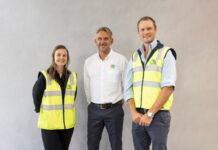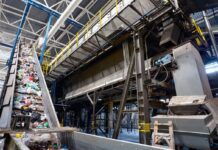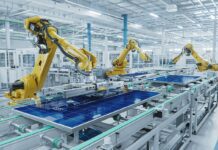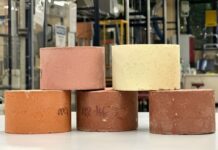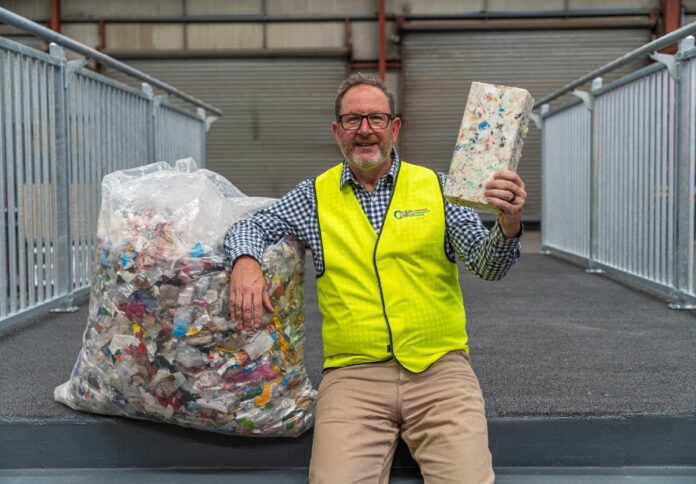
Australian composites manufacturer Sustainable Infrastructure Systems (SIS) has pioneered what it touts as a world-first technology, converting post-consumer soft plastics into high-strength structural building panels.
The innovative panels, crafted from glass fibre-reinforced polymer (GFRP) and discarded soft plastics, boast strength comparable to concrete, while also offering up to a 48 per cent reduction in embodied carbon emissions compared to traditional concrete panels.
Furthermore, their durability ensures a lifespan exceeding 100 years, the company said in a media release.
The soft plastics used in these panels are sourced from various waste streams, including stockpiles accumulated after the closure of Australia’s REDcycle soft plastics scheme.
According to SIS, this recycling technology not only diverts significant amounts of waste from landfills but also provides a viable alternative for sustainable infrastructure development.
The debut project featuring these pioneering panels is a pedestrian bridge erected at Newenham, Mount Barker, in collaboration with Mount Barker District Council and renowned South Australian developer Burke Urban.
Measuring 7.5m x 3.4m, the bridge incorporates 70 per cent soft plastics, equivalent to approximately 29 standard 240L kerbside recycling bins of materials such as shopping bags, plastic film, and food wrappers.
Nick Wotton, the managing director of SIS, expressed pride in the company’s commitment to sustainability and its role in addressing pressing environmental challenges.
“There are potentially limitless applications for our panels in transforming everyday rubbish into structures with huge benefits for our clients, communities and the environment,” he said.
Moreover, SIS engineers, in collaboration with a team from the University of Adelaide led by Professor Scott Smith, have been actively exploring ways to maximise the use of post-consumer plastics while reducing reliance on virgin materials.
Looking ahead, SIS said it plans to scale up production of these GFRP composite panels, creating an estimated 15-18 full-time positions in the upcoming fiscal years.
Additionally, the company is set to participate in trials for manufacturing structural panels using wind turbine blades, further diversifying its sustainable product range.


